News
Thousands travel to Missouri as body of Catholic nun found incorrupt four years after death and burial

The city of Missouri is reported to have become a pilgrimage of sort as thousands of people arrive daily to watch the body of Sister Wilhelmina Lancaster which was found incorrupt four years after she died and was buried.
The BBC had days ago, reported that the community of Benedictine Sisters of Mary was thrown into excitement and wonders after they found the incorrupt body of Sister Wilhelmina Lancaster, the founder of Benedictine Sisters of Mary, Queen of the Apostles.
The report is attracting thousands of pilgrims who travel to Missouri daily to see the sister’s body while many pray for her intercession.
According to the report, there are a few Catholic Saints over the years whose bodies are incorrupt and that the rare occurrence happens maybe once in 100 years.
Sister Wilhelmina died four years ago and was buried in Missouri.

According to the report by CNN which Nationwide Reports is following keenly, she was buried in a coffin said to have cracked.
However, the authorities decided to exhume her body in order to bury her at a proper place, but found her nearly completely incorrupt.
According to BBC, Sister Wilhelmina Lancaster appears to be the first African-American Nun whose body didn’t decay after 4 years of interment without embalment.
The church is still investigating.
News
Babangida made us billionaires, including Dangote, says Arthur Eze, donates N500m at book launch
Oil mogul, Prince Arthur Eze has praised former military president, Gen. Ibrahim Babangida (rtd), for his magnanimity, saying he and many Nigerian billionaires were made rich by the Babangida.
Arthur Eze made the revelations in Abuja on Thursday at the public presentation of babangida’s book, A Journey in Service. He said Africa’s richest person, Aliko Dangote and others were among beneficiaries of Babangida’s magnanimity.
According to the Anambra born business empire owner, as a top military officer, Babangida introduced him to all the military governors and GOCs at that time, adding that he travelled to many countries for business including Sierra Leone and others for businesses with the support of the former military leader.
Describing Babangida as a man without enemies, Eze said he cannot thank God for His grace without mentioning Babangida without whim he said, “I would have been dead.”
In appreciation, Arthur Eze donated N500m to the former military president, saying he has done so much and that the book event presented him the opportunity to do something for Babangida.
The event was attended by President BolaTinubu, former heads of state and former presidents including Dr. Goodluck Jonathan, captains of industry, retired military officers and several others.
News
June 12 election was suspended without my permission – Babangida
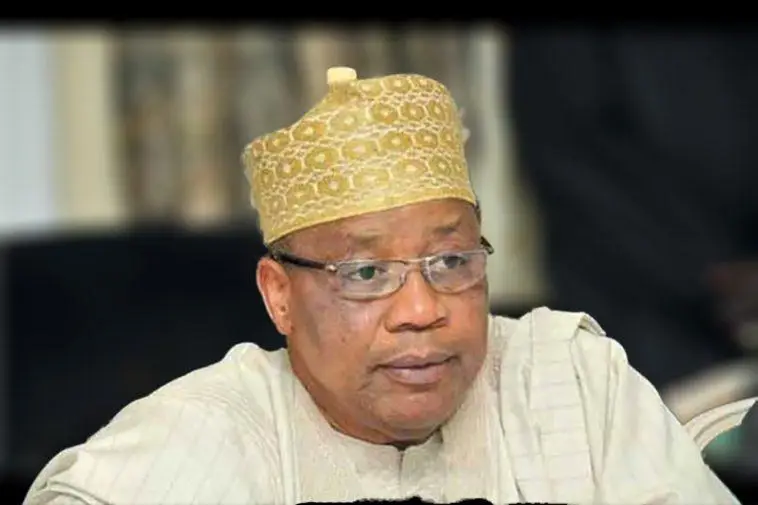
Former Nigeria’s military president, Ibràhim Babangida, has unveiled his side of the story about the annulment of the June 12, 1993, presidential election.
In his memoir, “A Journey in Service,” Babangida claimed that the election annulment was carried out by forces led by Sani Abacha, his chief of defense staff, without his knowledge or permission.
According to a story published Thursday by The Cable, Babangida recounted that he was in Katsina attending a funeral when he received news of the annulment.
He claimed that he expressed alarm and horror at the sudden turn of events, stating that he had previously decided to proceed with the elections despite opposition from some military officers.
According to Babangida, he later discovered that the forces against the June 12 election were led by Sani Abacha who later became military head of state.
Babangida, who did a national broadcast on June 24, 1993 to officially announce the annulment of the election, said Abacha had become a major force in a “factionalised” military and it was difficult to remove him when he stepped down from power.
The former president added that the events leading up to the annulment began with an injunction obtained by the Association to Better Nigeria (ABN), led by Arthur Nzeribe, to stop the electoral commission from conducting the election.
Babangida admits that Nzeribe was close to him, but denies supporting ABN’s activities.
“From out of nowhere, on June 10, two days before the presidential election, the same shadowy group, ABN, which had been campaigning for an extension of military rule, approached the Abuja High Court of Justice Bassey Ikpeme for an injunction to stop NEC (National Electoral Commission) from conducting the elections,” Babangida wrote in his memoir.
“Unknown to me at the time, Justice Ikpeme, who was relatively young at the Bench, had worked in the chambers of the Attorney-General and Minister of Justice, Clement Akpamgbo. Strangely, Justice Ikpeme, in the dead of night, in clear violation of Decree 13, which barred any court from interfering with INEC’s conduct or scheduling of the elections, granted the ABN an injunction stopping NEC from conducting the June 12 elections. There was confusion everywhere.”
He said he quickly convened an emergency meeting of the National Defence and Security Council (NDSC), the country’s highest governing body, to discuss the way forward.
“On Friday, June 11, as the NDSC meeting was going on, I learned that a Lagos High Court had ruled that NEC should go ahead with the elections. The NDSC meeting on Friday, June 11, only hours before the scheduled elections, was one of the stormiest meetings I ever conducted as President. Strangely, the Attorney General and Justice Minister, Akpamgbo, who was the nation’s chief law officer and who ought to know that the Justice Ikpeme court order violated an extant law (and was tacitly supported, it turned out by some of my topmost military officers), advised that the elections be postponed in compliance with the Abuja court order. Professor (Humphrey) Nwosu (NEC chairman) insisted, to the dismay of my top military colleagues, that he had enough powers under the law to proceed with the elections.
“The arguments went on for hours in a tense atmosphere, peopled by some who wanted the elections postponed, among them the Chief of Defence Staff, General Sani Abacha, Lt-General Joshua Dogonyaro and a few Service Chiefs. But I had my views bottled inside me! Even before Professor Nwosu presented his compelling argument, I decided that the elections should proceed, backed firmly by the Chief of Army Staff, Lt-General Salihu Ibrahim.”
Babangida said he looked across the room and said to Nwosu: “Go ahead with the elections. Go to your office, hold a world press conference and tell everyone the elections will be held tomorrow as planned.”
He said on June 16, Nwosu suddenly stopped the announcement of the election results even though the voting was peaceful and orderly.
“And then, on June 16, without my knowledge or prior approval, NEC Chairman, Professor Nwosu, announced the suspension of the June 12 election results ‘until further notice’. I knew instantly that certain fifth columnists were at work and that there was a need for extra care! And even after that suspension of the announcements of results, ABN obtained another ‘strange’ court order from Justice Saleh’s court in Abuja, stopping the release of the results of the elections,” he wrote.
On June 23, Babangida said he left Abuja for Katsina to commiserate with the Yar’Adua family over the death of their patriarch, Musa Yar’Adua, former minister of Lagos affairs and father of Umaru, the late Nigerian president who died in office in 2007.
Babangida narrated: “The funeral had taken place, and as I got ready to leave, a report filtered to me that the June 12 elections had been annulled. Even more bizarre was the extent of the annulment because it terminated all court proceedings regarding the June 12 elections, repealed all the decrees governing the Transition and even suspended NEC! Equally weird was the shabby way the statement was couched and made. Admiral (Augustus) Aikhomu’s press secretary, Nduka Irabor, had read out a terse, poorly worded statement from a scrap of paper, which bore neither the presidential seal nor the official letterhead of the government, annulling the June 12 presidential elections. I was alarmed and horrified. Online newspaper subscriptions
“Yes, during the stalemate that followed the termination of the results announcement, the possibility of annulment that could lead to fresh elections was loosely broached in passing. But annulment was only a component of a series of other options. But to suddenly have an announcement made without my authority was, to put it mildly, alarming. I remember saying: ‘These nefarious ‘inside’ forces opposed to the elections have outflanked me!’ I would later find out that the ‘forces’ led by General Sani Abacha annulled the elections. There and then, I knew I was caught between ‘a devil and the deep blue sea’!! From then on, the June 12 elections took on a painful twist for which, as I will show later, I regrettably take responsibility.”
Babangida’s memoir
Babangida’s memoir sheds light on the complex web of events surrounding the June 12 election and its annulment. He takes responsibility for the painful twist the election took, acknowledging that he was caught between opposing forces.
The annulment of the June 12 election remains a significant event in Nigeria’s history, with many regarding it as a missed opportunity for democratic transition.
Babangida’s revelations provide new insight into the circumstances surrounding the annulment, highlighting the complex power dynamics at play.
News
‘War’ in Senate as Akpabio orders Natasha out of plenary
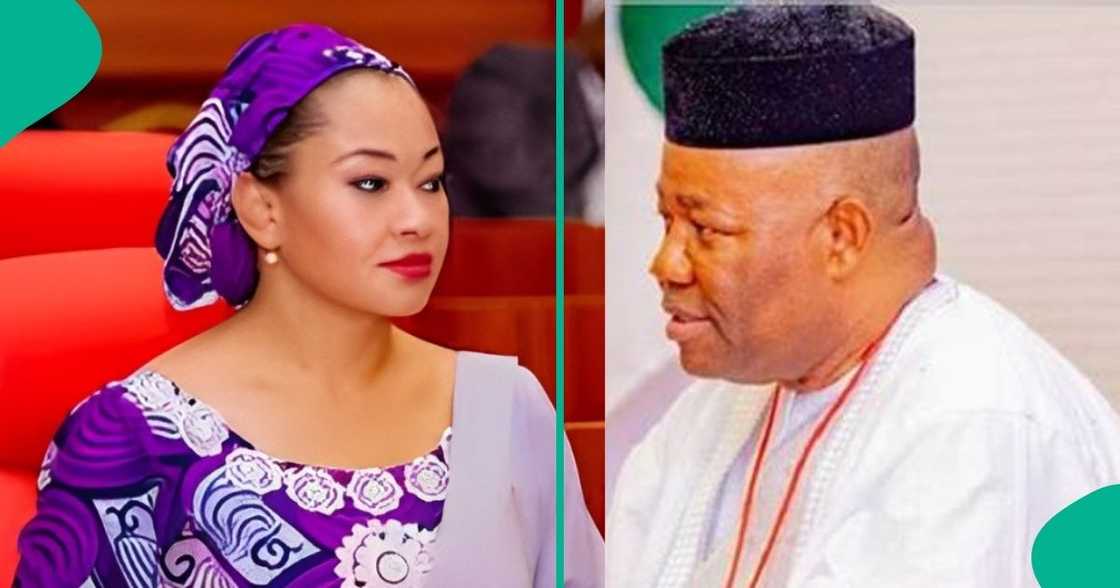
There was commotion on the floor of Nigeria’s Senate on Thursday after Senate President, Godswill Akpabio announced immediate suspension of Senator Natasha Akpoti Uduaghan representing Kogi Central for alleged unruly behaviour and ordered she be sent out of the chambers with immediate effect.
The dramatic incident occured Natasha Akpoti-Uduaghan engaged in a shouting match after discovering that her seat had been changed without her consent.
The plenary session, presided over by Senate President Godswill Akpabio, was ongoing when Chief Whip Senator Mohammed Ali Monguno raised a point of order concerning Natasha’s seating position.
As Monguno made his submission, Natasha interjected forcefully, demanding explanations for the change.
“Why was my seat moved without my consent?” she queried, refusing to be silenced.
The altercation escalated, prompting Akpabio to order the Sergeant-at-Arms to remove her from the plenary.
However, Natasha resisted, standing her ground and defiantly declaring, “I am not afraid of you, and I will not be silenced.”
The lawmaker also accused Akpabio of sidelining her, stating that she had been denied several opportunities to present bills for a second reading since their last confrontation.
The situation was eventually brought under control when the public address systems were shut down, allowing proceedings to resume.
-

 News2 years ago
News2 years agoBreaking: Tinubu’s authentic ministerial nominees
-
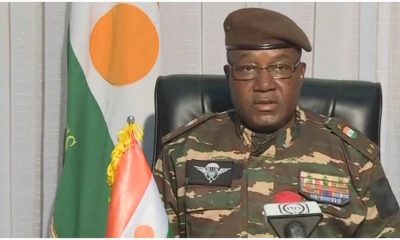
 News2 years ago
News2 years ago“Anytime we want to kill terrorists, President would ask us to take permission from France but they were killing our soldiers-” Niger Republic coup leader
-
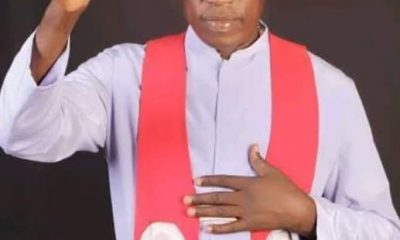
 News1 year ago
News1 year ago“I’m leaving the Catholic church because Bishop Onah is oppressing me,” says Okunerere
-
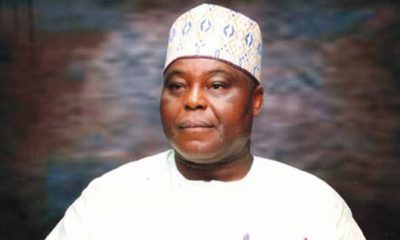
 News2 years ago
News2 years agoDokpesi and the Gazebo Mystique
-

 News1 year ago
News1 year agoRadio Nigeria’s veteran broadcaster Kelvin Ugwu dies three months after retirement from service
-

 News2 years ago
News2 years agoTsunami: Tinubu orders dissolution of managements, boards of MDAs, to sack all Buhari’s political appointees
-

 News10 months ago
News10 months agoPersons against Allagoa’s reforms behind protests at NSITF
-

 News2 years ago
News2 years agoLast minutes fever: Nigerian Hunters Service optimistic as Buhari signs five Bills into law

